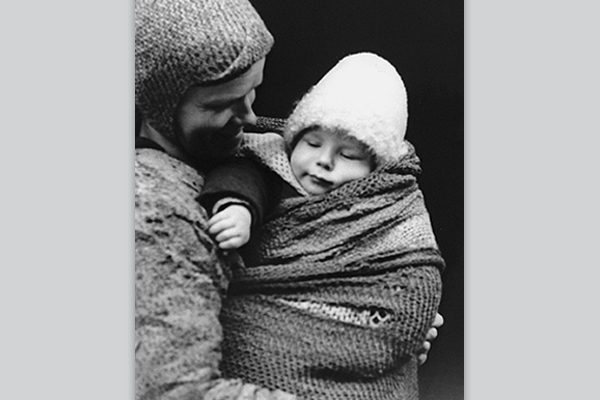
A destitute mother holds a child swaddled in a ragged blanket on a street in the Warsaw ghetto, 1941. US Holocaust Memorial Museum, courtesy of Rafael Scharf
Most have heard the old adage "a picture is worth a thousand words," but what can we truly learn about an experience from a picture? The photographer often has an agenda when taking a photo, choosing to frame the image to fit their conceptualization. Does this detract from the captured scene? Can we still use this image and film footage to tell us something about history that differs from the message intended by the individual recording the moment? This panel will examine images and film from the Holocaust, Japanese American incarceration, and the displacement of American Indian communities for the construction of the Hanford Nuclear Site. Panelists will tell audiences about these persecution histories in Nazi-occupied Europe and the Pacific Northwest from the filmed perspective of those living through these traumatic events. Three speakers from different fields will address how individuals have used cameras to record life in times of great persecution. This discussion will look at how to read images and the importance of capturing daily life even while abuse and murder are taking place.
Introductory Remarks and Moderator
Dr. Jacki Hedlund Tyler, Associate Professor of History, Eastern Washington University
Commentator and Questions
Dr. Natalia Ruiz Rubio, Professor of Spanish, Eastern Washington University
Panelists
Steve Bingo, Digital Projects Archivist, Eastern Washington University
Althea Huesties-Wolf, Acting Manager and Hanford Policy Analyst, Department of Natural Resources, Confederated Tribes of the Umatilla Indian Reservation
Dr. Ann Le Bar, Professor, Department of History, Eastern Washington University
Dr. Abigail Lewis, Postdoctoral Research Associate, Nanovic Institute for European Studies, Notre Dame University
This in-person or virtual discussion is free and open to the public. Registration is required.
For more information, contact Kierra Crago-Schneider at kcrago-schneider@ushmm.org.
This event was made possible in part through the generosity of the Curt C. and Else Silberman Foundation, supporting programs in higher education that promote, protect, and strengthen Jewish values in democracy, human rights, ethical leadership, and cultural pluralism.
This event draws on research supported by the Social Sciences and Humanities Research Council, which is part of the government of Canada.
The mission of the Jack, Joseph and Morton Mandel Center, part of the United States Holocaust Memorial Museum, is to ensure the long-term growth and vitality of Holocaust Studies. To do that, it is essential to provide opportunities for new generations of scholars. The vitality and the integrity of Holocaust Studies require openness, independence, and free inquiry, so that new ideas are generated and tested through peer review and public debate. The opinions of scholars expressed before, during, or after their activities with the Mandel Center do not represent and are not endorsed by the Mandel Center or the Museum.
